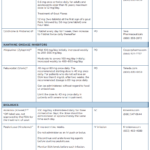(Reuters)—The U.S. Food and Drug Administration staff reviewers have raised concerns about kidney- and heart-related side effects noted in trials on AstraZeneca Plc’s gout treatment, especially at higher doses.
FDA reviewers, in a preliminary review published on Wednesday, expressed concerns over higher death rates related to the side effects in patients who took the drug, lesinurad.
Deutsche Bank analysts said they expected the panel to recommend an approval for the drug but with stringent safety monitoring requirements, which could limit its commercial opportunity.
The reviewers may recommend measures including post-marketing safety trials, they wrote in a note.
A panel of independent advisers to the FDA will make a recommendation on the drug on Friday. It is also expected to discuss the drug’s suitability for once-daily dosing.
The regulator usually follows the panel’s recommendations.
Gout affects nearly 8.3 million Americans.
Lesinurad, designed for use in combination with an older drug, febuxostat, works by decreasing the production of uric acid and increasing its excretion.
Analysts estimate the drug could reach annual sales of $350 million by 2020, according to Thomson Reuters Cortellis.
Although the drug is not expected to be a major contributor to AstraZeneca’s sales, its success in late-stage trials vindicates the company’s ability to develop new medicines.
Lesinurad was developed by Ardea Biosciences, which was acquired by AstraZeneca for $1.26 billion in 2012.
AstraZeneca’s U.S.-listed shares were down 1.3 percent at $30.54 in late morning trading on Wednesday. Shares of CymaBay Therapeutics Inc, which is also testing a gout drug in mid-stage trials, also fell 2.2% to $1.76.


